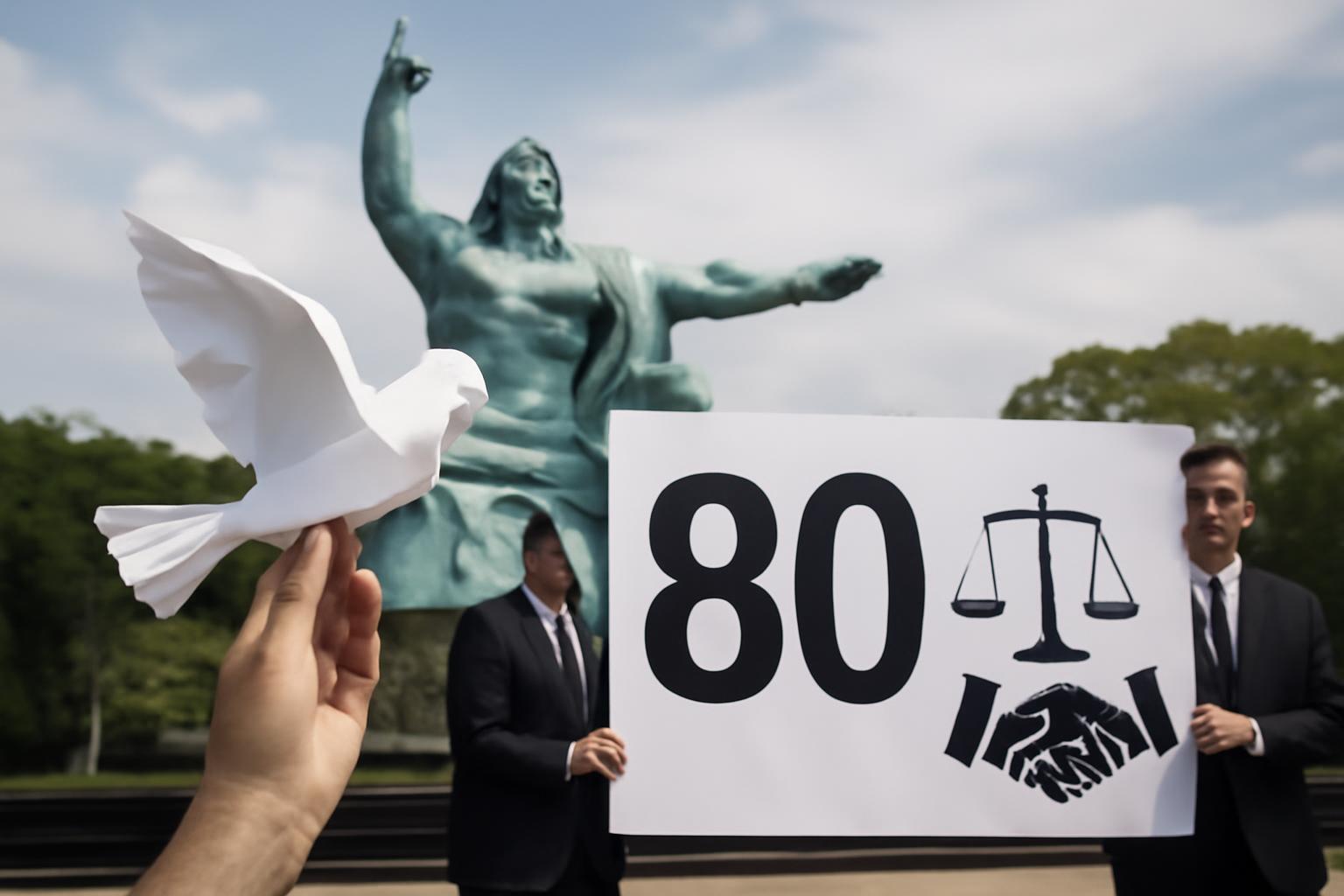Nagasaki marked its 80th anniversary with a renewed appeal to abolish nuclear weapons. The city’s mayor warned of an existential crisis—the threat of nuclear war touching every corner of the Earth—and urged the world to heed the lessons of history so that Nagasaki might stand as the last witness to such annihilation. At 11:02, the moment Fat Man exploded in 1945, a minute of silence was observed. Estimates place tens of thousands killed instantly and many more injured. Three days earlier Hiroshima had suffered a blast of lower power, and Japan soon surrendered. The mayor highlighted a dangerous cycle of confrontation and fragmentation, and he praised the civil-society efforts of Nihon Hidankyo, a group that last year received the Nobel Peace Prize. He reiterated the call for Japan to join the UN Treaty on the Prohibition of Nuclear Weapons, a demand echoed by his Hiroshima counterpart a few days before.
From this remembrance, a truth presses hard: the urge to cleanse the world of weapons by decree is a noble imperative, but the means by which it is pursued reveals the limits of human foresight. To imagine that a universal prohibition can be written, ratified, and enforced from the summit to the street is to mistake the nature of knowledge and the structure of a free, complex world. The energy of fear presses governments toward sweeping moral schemes, yet history tests such schemes against the stubborn fact that states do not operate on a single, fully known blueprint. The real courage lies not in proclaiming a flawless end-state but in fostering conditions in which restraint, prudence, and mutual advantage coexist.
The call to ban all nuclear weapons, while morally lucid, risks becoming a weapon of its own: it can empower coercive norms and unequal power. No regime, no alliance, no treaty can inspect truth with perfect accuracy, nor can it eliminate the incentives that drive nations to seek security by building ever more formidable arsenals. Verification, compliance, and deterrence require knowledge dispersed among countless actors—governments, engineers, diplomats, farmers, traders, voters—and that dispersed knowledge cannot be seized, bottled, or perfectly orchestrated from above. A treaty that seeks to erase a class of instruments of force may ease conscience, but it cannot by itself dissolve the incentives, missteps, or temptations that lead to miscalculation.
What then is the path to enduring peace? Not a grandiose renunciation of weapons dictated by moral certainty, but a patient, prudent strengthening of the order in which nations live together: a framework of mutual restraint anchored in the rule of law, transparent diplomacy, and institutions that channel conflict through nonviolent means. The best antidote to fear is the expansion of peaceful cooperation—free trade, open channels of communication, and civil-society actors that hold governments to account. The remarkable work of Hidankyo shows that citizens, by organizing, bearing witness, and appealing to shared humanity, can temper the passions of power without erasing sovereignty or compelling conformity.
Nagasaki’s memory thus teaches a double lesson. First, the memory ought to amplify the humility of rulers: no one can claim perfect foresight or perfect control over the consequences of force. Second, it should elevate the quiet, stubborn work of civil society as the true ballast of liberty. To honor that memory is not to unleash a moral crusade that seeks to legislate away complexity; it is to insist that peace be built on the reliable harnessing of dispersed knowledge, the protection of individual rights, and the steady, often painstaking, cultivation of trust among nations.
If we are to learn from history, let us do so by strengthening the spontaneous order that emerges when people freely exchange, cooperate, and constrain themselves in obedience to shared principles of justice. Let us resist the temptation to substitute moral infallibility for disciplined prudence. The path to a safer world is not the erasure of weapons by fiat, but the disciplined cultivation of institutions and habits that reduce the likelihood of war, while preserving the liberty of peoples to decide their own destinies within the bounds of law and mutual respect.
